If your heat pump feels sluggish, makes weird noises, or just isn't keeping your home comfy, you’re not alone. A lot of UK homeowners skip the simple chores that keep these units humming for years. Below are the everyday actions that can save you time, hassle, and a hefty repair bill.
First off, treat your heat pump like you would a car. A quick visual check once a month goes a long way. Make sure the outdoor coil is free of leaves, grass, and dust – a vacuum or garden hose on low pressure works fine. If you notice a layer of mud or grime, gently rinse it off and let it dry.
The indoor air filter catches dust and pollen, so replace or clean it every 4‑6 weeks during heavy use. A clogged filter forces the fan to work harder, raising energy costs and wearing out the motor faster.
Watch the fan blades for debris or bent edges. Even a small bend can throw the airflow off balance and cause vibration. Straighten or replace the blade, then tighten any loose screws.
Check the condensate drain line for blockages. A slow drain can lead to water overflow and corrosion. Pour a cup of hot water down the line every few months to keep it clear.
Schedule a professional service at least once a year. A certified technician will test refrigerant pressure, inspect electrical connections, and calibrate thermostats – things most DIYers can’t safely do.
Warm air not blowing? Start by confirming the thermostat is set to “heat” and the temperature is higher than the room’s current level. If the fan is off, flip the fan switch to “auto” or “on” and see if air moves.
If the unit runs but only blows cool air, the reversing valve might be stuck. You can try resetting the system by turning the power off at the breaker for a minute, then turning it back on. Often that kick‑starts the valve.
Strange noises like rattling or squealing usually point to a loose part or a worn motor belt. Shut the unit off, open the access panel, and tighten any visible bolts. If the belt looks cracked, replace it – it’s cheap and saves the motor from overheating.
When the heat pump turns on but the temperature barely changes, the outdoor unit might be frozen. Turn it off, let the ice melt, and clear any ice build‑up with a soft brush. Add a little anti‑freeze spray if you live in a very cold area.
If you’ve tried these steps and the problem persists, it’s time to call a local expert. Trying to fix refrigerant leaks or electrical faults yourself can be dangerous and may void warranties.
In short, regular cleaning, filter swaps, and a yearly professional check keep most heat pumps happy for 15‑20 years. When issues pop up, a quick visual inspection often reveals the culprit before you need a costly call‑out.
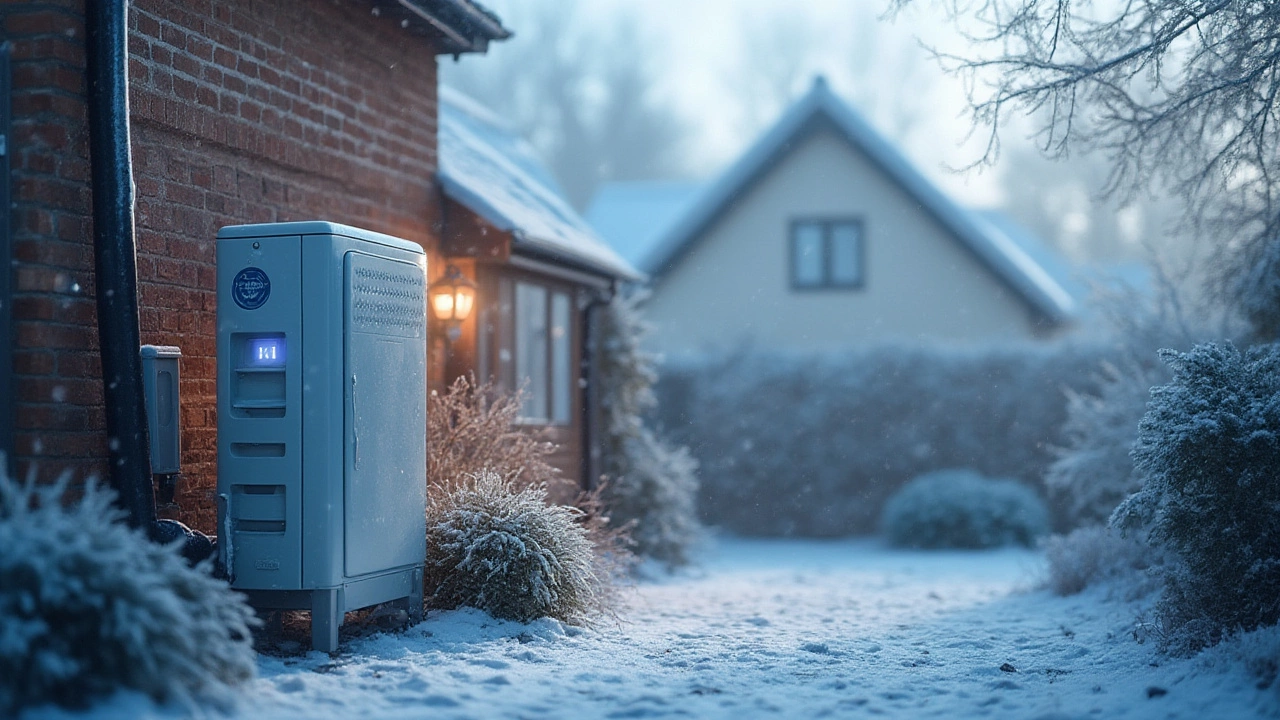
Wondering what temperature makes a heat pump stop working well? Learn the cold limits, key facts, and expert tips for running heat pumps in harsh winters.
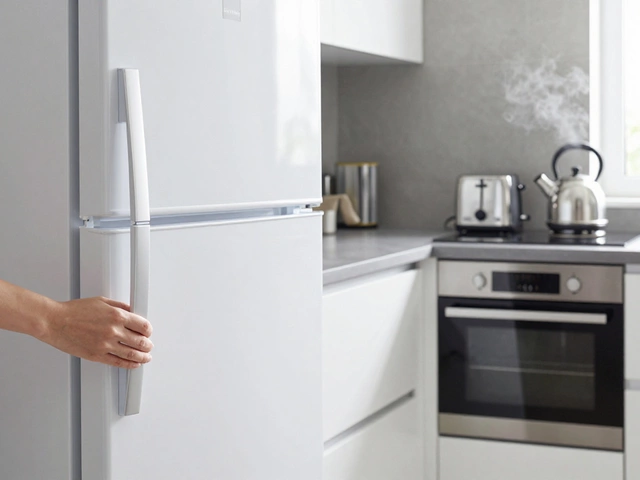
An appliance is a device designed to perform a specific household task like cooking, cleaning, or cooling. It’s not just anything that plugs in - it must replace manual labor and be used regularly at home. Understanding this helps you find the right repair service and know what’s covered under warranties.
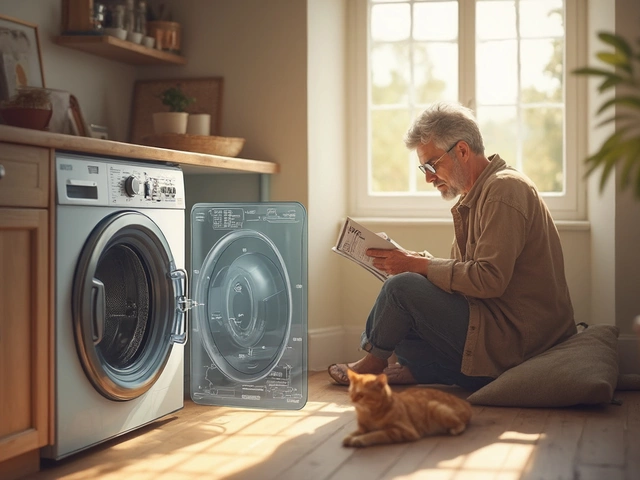
Discover which washing machine parts break down most often, why they fail, and how to prevent expensive repairs. Get tips to keep your washer running smoothly.
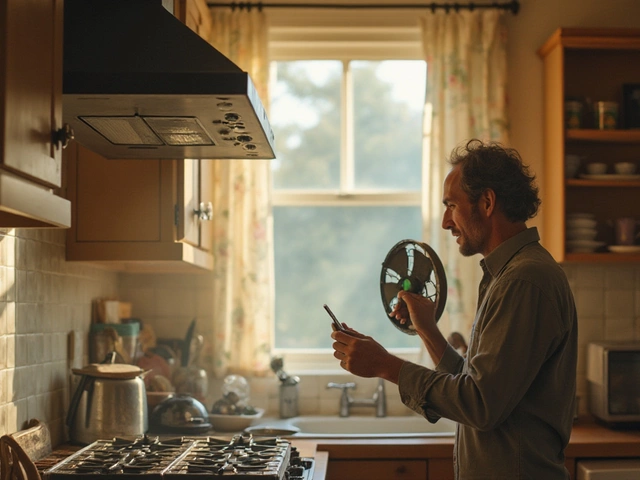
Explore the practical steps in diagnosing and fixing common issues with kitchen extractor fans. Learn about the signs your fan might need repair, and gather essential maintenance tips to extend its life. Whether you're a DIY enthusiast or considering professional help, this guide provides valuable insights for restoring your kitchen ventilation system to optimal performance. Discover how regular upkeep can prevent costly replacements.

Ever opened your freezer to find squishy ice cream or thawed food when it should be rock solid? This article digs into the real reasons your freezer refuses to stay frozen, from simple mistakes to sneaky mechanical fails. Learn how to spot common culprits, fix minor issues yourself, and know when things are actually serious. Packed with practical tips and straightforward advice, you'll get the cold facts and solutions you need. No jargon, just help you can actually use.
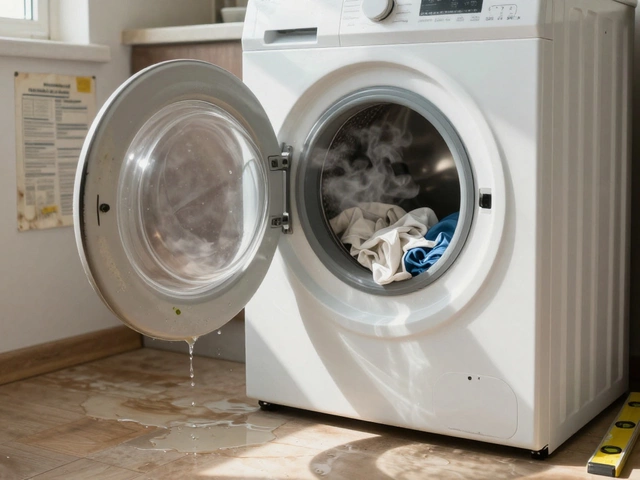
Most washing machines last 8-12 years, but signs like loud noises, leaks, or error codes mean it's time to consider repair or replacement. Learn how to extend its life and when it's better to buy new.